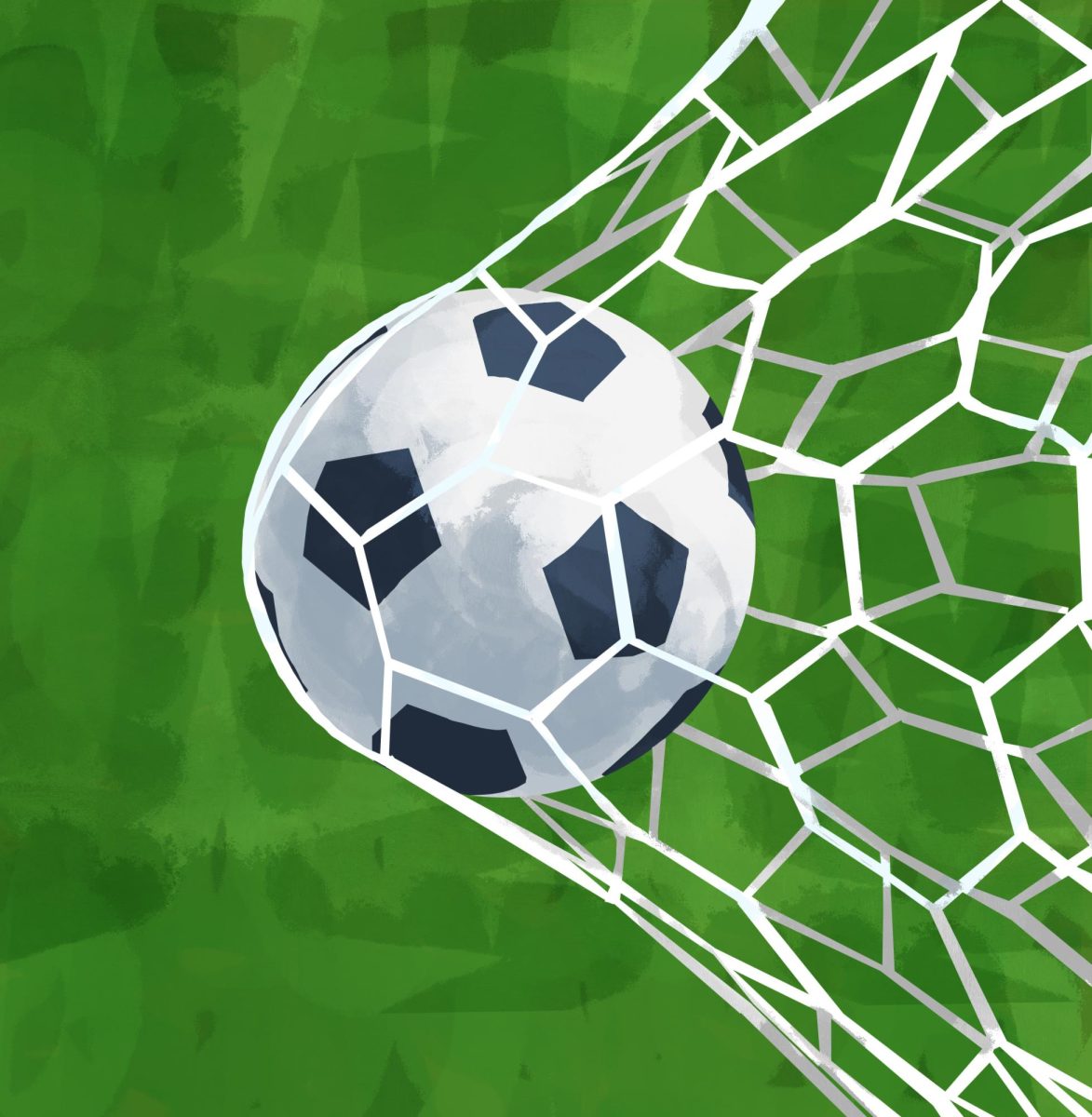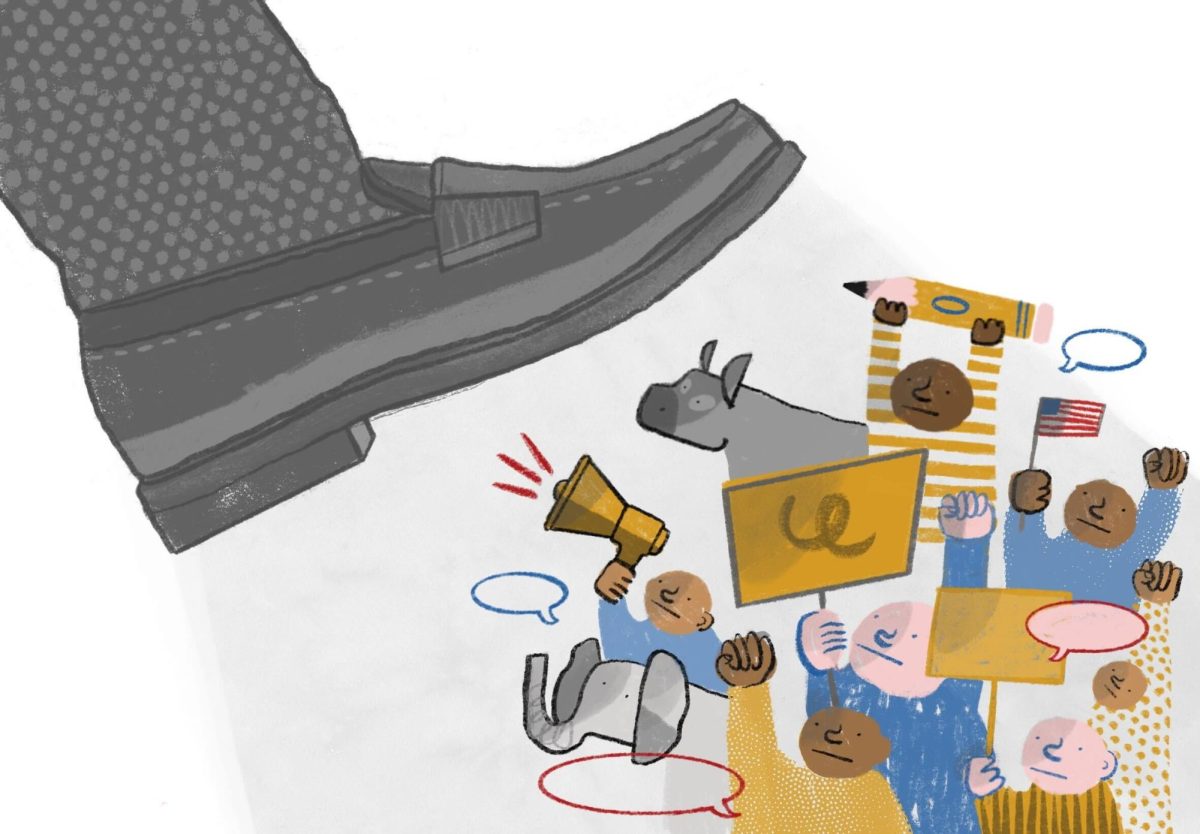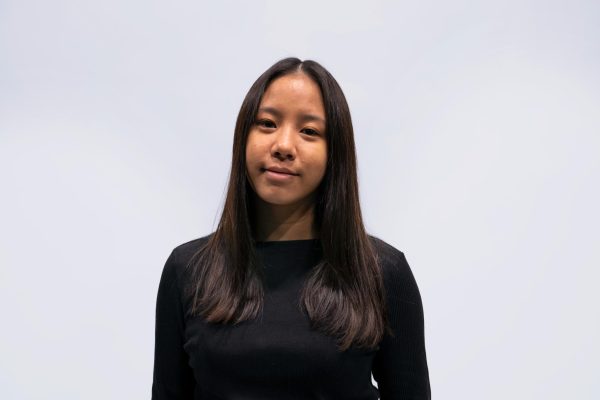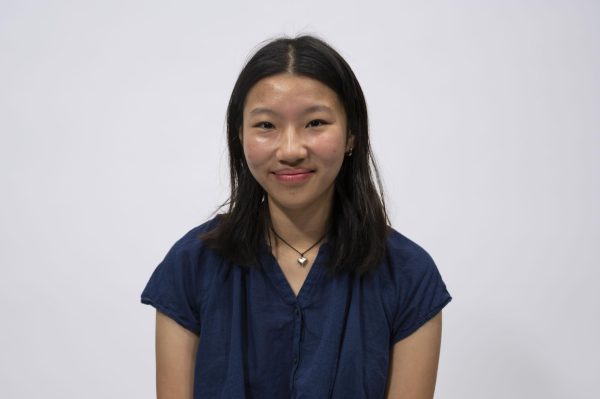It is human nature to strive to showcase our best attributes to the people around us while trying to conceal the flaws — big or small — we perceive about ourselves. Whereas most individuals tend to prize strength and shun weakness, I propose the opposite mentality, as acknowledging and embracing our weaknesses enables us to find the source of our strength.
Upon joining the soccer team at my local high school, I stood amongst giants — girls with iron bands of muscle, striding onto the field. At that moment, my fantasies of being the exemplary player dissipated as I was undoubtedly the team’s underdog, a disheartening truth that became my biggest motivator in transforming into a fierce presence on the field, which positively influenced my everyday mentality off the field.
After moving to the country of Georgia in 2018, I immediately signed up for the girls’ varsity soccer tryouts in my first year. Upon making the team, I spent most of the games on the bench gazing wistfully at the seven starting players who had everything I did not … height, strong build, technical prowess and speed. I looked at my 5’1 scrawny self and let the realization plummet in my gut, as I was nowhere near their caliber of play.
In one particular game, I caught sight of the star player speeding toward the ball. Although both of us were new to this sport, her six-foot build and consistency on the field had granted her a spot as one of the starting players — heavily praised for her impenetrable defense. All she had to do was plant her sturdy six-foot frame in front of the opponent and down they crumpled.
It all boiled down to a simple truth: The player who could run the fastest and jump the highest had a greater chance of advancing the team toward victory. I despairingly realized that no amount of work spent training would magically grant me a bigger frame or longer legs. My smaller physique was a result of genetics that was a factor beyond my control — a given, so deeply infuriating and unfair.
In truth, I didn’t just love soccer but needed it. For me, the set practice schedules served as a constant in each country I moved to. It didn’t matter how frequently I was reprimanded for missing an interception or lacking the power to kick the ball far enough across the field. All I wanted was a ball at my feet and it served as a source of comfort amid a sea of uncertainty within new environments.
Armed with an iron resolve, I had to find a way to attain the physical and technical qualities my teammates possessed.
Gradually, I realized that it was more productive to focus my efforts on the aspects of life that were within my control instead of wistfully wishing for a miracle. While everyone has attributes they’d rather change, it’s often more productive to take actionable steps toward improving oneself.
As growing taller was out of the question, I focused my energy on gaining muscle mass, which was accomplished by going on frequent runs along the rocky terrain behind our neighborhood. This experience highlighted a key advantage of being an underdog, in training one’s perseverance and grit to willfully charge toward one’s goals amidst adversity. While there are a multitude of individuals who are naturally gifted in various facets of life, the unwavering desire to go far can set one apart from the rest.
After summer ended, I found myself in familiar territory — tightening my cleats once again as I prepared for the fight of my life at tryouts. I grinned with satisfaction as each slide tackle felt different — even more exhilarating when executed with agility and controlled aggression.
In learning my strengths in this sport, I found my place on the team by becoming the right defender at all the games that followed suit.
While one’s underdog status can be viewed as a burden to others, it can serve as a powerful motivator in our lives. By providing us with a sharpened sense of clarity, we can quickly recognize the specific areas in our lives we can strengthen. In turn, this brings about a heightened sense of urgency in comparison to others, enabling improvements at a more rapid rate.
On the field, each one of my teammates was praised for different reasons, whether it was due to attributes such as speed, physicality, or technicality. Even so, each individual possessed something the other lacked, which strengthened the chemistry between us in appreciating each player’s irreplaceable qualities.
What I had once considered my greatest weakness had become an undeniable strength of mine on the field, as a player who was small and quick on their feet; able to quickly accelerate and mess up the opponent’s footwork.
The same mindset can be applied to any group setting that could minimize potential conflict between individuals when collaborating. When we learn to recognize each other’s differences as a strength rather than a weakness, an increasingly diverse atmosphere is created, devoid of judgment, that gives way to increasingly creative and well-rounded ideas.
Furthermore, our perceived flaws can be turned into an opportunity to make someone feel less alone. When we observe certain individuals courageously going about life while navigating through adversity, it can motivate us to do the same.
One time, I remember watching the game unfold from the bench and seeing a girl charge down the field — a foot shorter than everyone else. At that moment, I sucked in a breath and felt a spark of connection between us as there was finally another player to whom I related. Although she’d never know it, seeing her that day served as evidence that it was possible to play at that level of caliber. In turn, this instilled a sense of confidence that I would one day come into my own.
Standing among giants atop the turf, I knew exactly where I belonged.
Mikayla Tsai is a third-year behavioral neuroscience major. She can be reached at tsai.mik@northeastern.edu.
The Huntington News is dedicated to serving the Northeastern University community with original, professional reporting and creating an environment in which student journalists can learn from one another. Support an independent, free press at Northeastern University with your donation today.


















